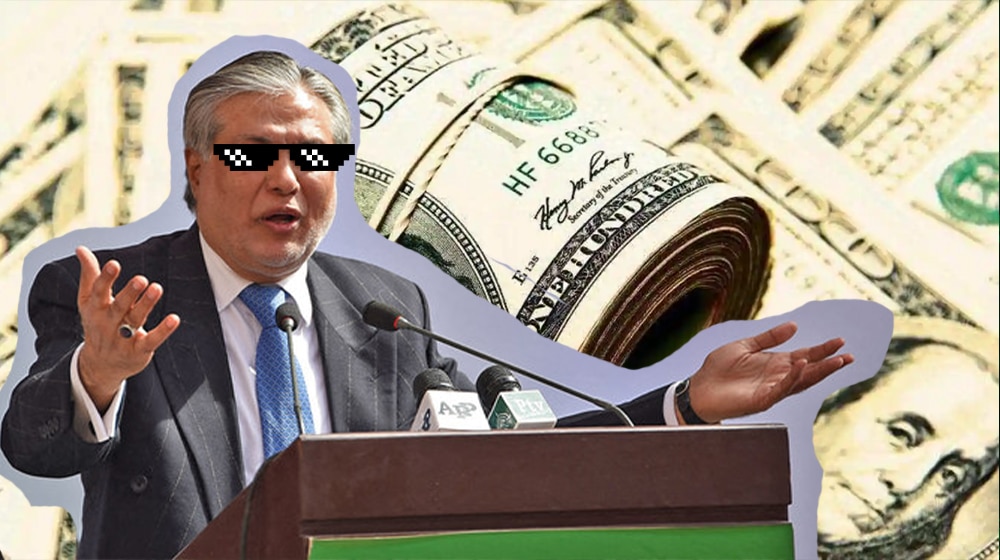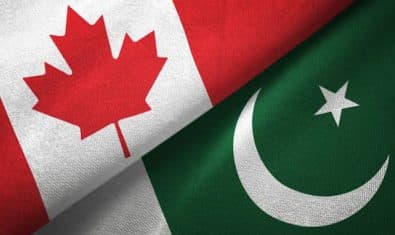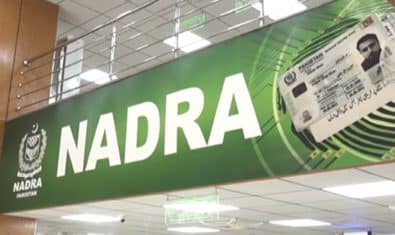While assuring investors that there was no chance Pakistan would default any time soon, Finance Minister Ishaq Dar played it smooth by blaming the system for all the mess, including the country’s dwindling forex reserves.
Addressing a ceremony at the Pakistan Stock Exchange (PSX) on Wednesday, Dar said Pakistan has a bright future and a strong economy, but recent problems have put it in a position it does not deserve to be in.
The finance czar expressed his displeasure with the current state of the economy, noting that it has been three months since he took over and that every day since then has been filled with default predictions.
“How will there be a default? There is no chance that Pakistan will default,” Dar reiterated. He acknowledged that the country is in a difficult situation, but he believes it will “survive” as long as things are managed properly.
He added that he is not to blame for the country’s reserves not being $24 billion as they were in 2016. “It’s not my fault. The flaw is in the system, and we must ensure Pakistan’s progress, “Dar stated.
Dar noted that earlier there were rumors that Pakistan would not be able to make its $1 billion bond payments. Even after the payments were made, “these pseudo-intellectuals keep coming”.
He warned investors not to listen to such people because they were the ones who had brought Pakistan to this point, and he urged them to spread the word that Pakistan would not default. “I can go against anybody in any conversation and I can prove Pakistan will not default. But we are destroying the country for petty political and ideological reasons,” he lamented.
The finance minister argued that fear-mongering through media needs to be countered as it was creating panic and forcing investors to buy gold and US dollars. We have serious problems, but that doesn’t mean we can’t get out of this storm, he added.
Rupee Depreciation, Old Habits, Policy Rate
Dar said the disparity in the USD-PKR exchange rate between the interbank and open markets was now being properly addressed. He recalled how the markets caved the moment he boarded the flight to Pakistan. “I hadn’t even done anything as I did in 1999 or 2014. We were on the right track, with an Rs. 1.5 difference between interbank and open market rates”.
The finance minister blamed the worsening situation on three major factors: currency smuggling to a neighboring country, wheat imports with partial subsidies, and fertilizer imports with heavy subsidies. Wheat and fertilizer were also smuggled, he claimed. Dar said that he had requested domestic watchdogs to stop these items from being smuggled, adding that the economy needed to be defended in the same way that the territory was.
On another pressing note, Dar suggested that the country’s policy rate of 16 percent be reduced. He used Turkey as an example, where inflation was above 60 percent but the policy rate was only 9 percent.
Making his case, he called inflation “imported” and linked it to the rupee’s depreciation, while calling for the “games and experiments that have been played” to be corrected.
Dar said that Pakistan was declared a macroeconomically unstable country in 2013, that multilateral lenders and financial institutions were unwilling to lend even a dollar, and that there was a widespread belief that whichever political party won the general elections would declare default within 6-7 months.
“We should ask why Pakistan has arrived at this point. Why have we gotten to the point where we’re chasing even $1 billion? Self-reflection, I believe, is required. We must not repeat the misadventures and experiments that have brought us to this point,” Dar added. He emphasized the importance of fixing all issues together and reaffirmed hope that the economy will improve soon.





















